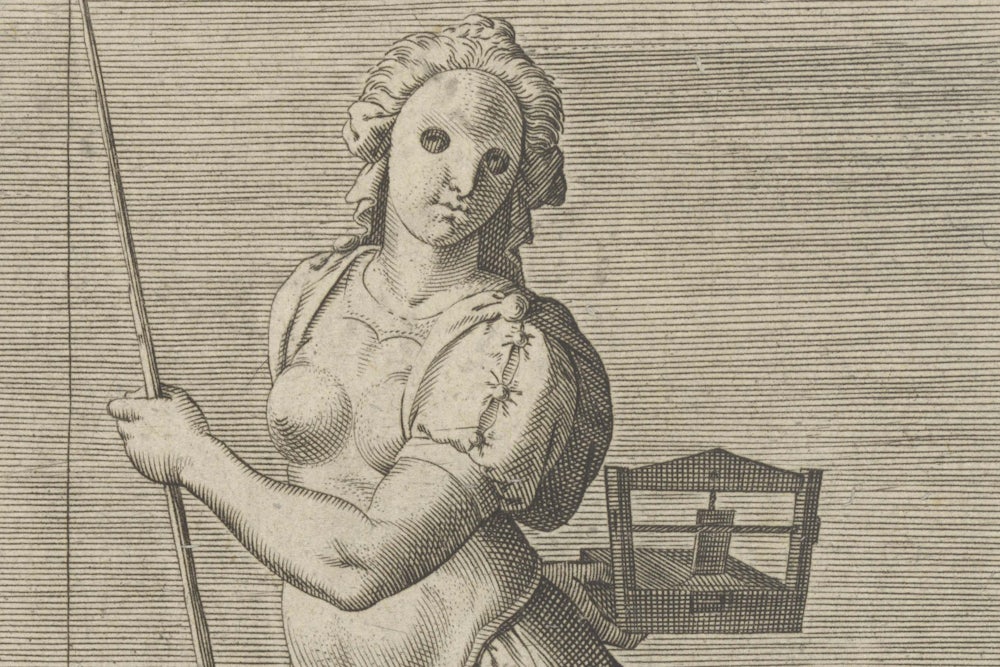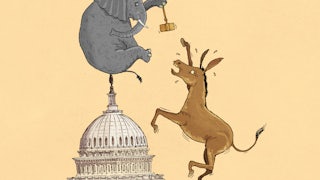On my third visit with the political philosopher Niccolò Machiavelli, we reconnoitered at the Ristorante Machiavelli, an eatery on a hillside in Seattle, Washington, on a day when it was closed for normal business. When he arrived, I greeted Niccolò with a hearty “ciao.”
“Grazie, mio amico, ” Niccolò replied. “But you know, back in my day, we did not have this word ‘ciao.’ So, I will greet you with the more customary buongiorno.”
“Buongiorno, Niccolò. I was just reflecting on the fact that you are considered by many scholars to be the greatest pioneer of modern political thought.”
“Yes, I know that is the case,” Niccolò said. “But I would be too modest to make that claim. There were others thinking along the same lines as I in that period, in Florence especially. Thinkers aware that you had to analyze politics from a realistic and not an idealistic point of view.”
“Yes, but it is principally your works from that time, The Prince and The Discourses, that we study. One of America’s founders, James Madison, said that if men were good, there would be no need for government!”
“Yes, I know that your founders were familiar with my works, especially John Adams, and adopted a primitive version of my proposal for mixed government, which the Roman sage Polybius had pioneered before me. The great Aristotle distinguished among three distinct forms of government—monarchy, or rule by a single individual or king; aristocracy, or rule by a privileged but responsible upper class; and democracy, rule by the masses. And each of these forms of government, he pointed out, has a good form and a bad form—a king can turn into a tyrant, an aristocracy can evolve into a self-serving oligarchy, and the masses can become a rampaging mob. So Polybius originated the idea of combining all three, which I advocated in turn in my era.”
“Yes,” I said, “and the founders thought of themselves as creating a modern version of that scheme. The president of the nation would be a facsimile of a king, but constrained by two differing legislative bodies, an elitist Senate with terms of service lasting six years and a more plebian House of Representatives elected every two years. And below the national level, there would be subordinate units with their own powers of self-government. One of the powers the states were given in the American Constitution was supervision of elections, both local and national.”
“Alora,” Niccolò said, “this, I think, brings us to the elections that were pending at the time of our two previous meetings. How did that go? You were fearing the worst.”
“The results were mixed,” I responded, “but for the most part much better than expected. Usually in the midterms the president’s political party loses a disproportionate number of seats in the Senate and House. The current president, Joe Biden, a Democrat, was not high at the time in public esteem, so it was expected that his political party would not do well. News commentators, as well as Republican talking heads, were predicting a ‘red wave,’ red being the color associated with Republicans, while blue is associated with Democrats. But there was no red wave. There wasn’t anything even close to one. Democrats maintained control of the U.S. Senate and increased their margin there by a small amount. U.S. Senate candidates in Georgia and Pennsylvania personally chosen by Donald Trump lost their races, as did his candidate for governor of Pennsylvania, who received only 42 percent of the vote. Republicans won control of the House of Representatives, but by only a small margin. Best of all, Republican ‘election deniers’ who ran for statewide offices, such as secretary of state and governor, that control the elections process in key states, failed to win their races.”
“Mi hai perso!” Niccolò said. “You’ve lost me! What is an ‘election denier’?”
“Ex-President Donald Trump lost the 2020 presidential election, but refused to concede to Joe Biden and mounted an effort—which he still has not abandoned—to nullify Biden’s victory. He plans to run again, and these election deniers, if they had secured those offices, would have helped him to be declared the victor in their states, whether he actually won the most votes or not. He represents, in other words, the first serious attempt in American history to transform the presidency into a monarchy, and he still has not abandoned that quest. In fact, he has advocated termination of the American Constitution.”
Niccolò riposted: “During our conversation in the early fall, we discussed the aspect of Roman civilization that in my view enabled the Romans to become the dominant power in the Mediterranean world—the amount of freedom vouchsafed to Roman citizens prior to the advent of the empire. And I noted that America, for all the faults it might have, has achieved the greatest degree of freedom in the modern world, and that its freedom now seemed threatened by the forces of reaction. And I explained that, for the Romans, having Fortuna, or the goddess of luck, on your side was crucial, and possessing the quality of virtù, or strength of character, which the goddess admires, was crucial in that regard. It seems that all these matters are going well for you and the democratic forces in America.”
“Niccolò, that is not something we can count on. I have done some research and learned that there was also a Roman goddess of treachery and fraud named Fraus—our word ‘fraud’ derives from it. Our current Republican Party is a fraudulent organization that has no interest in fostering a community of self-governing people, as republican philosophy calls for. Rather, as we have discussed, it is bent on weakening democracy in the United States if not doing away with it completely. There is a long struggle ahead. To borrow a phrase inspired by Roman traditions, we cannot rest on our laurels.”




